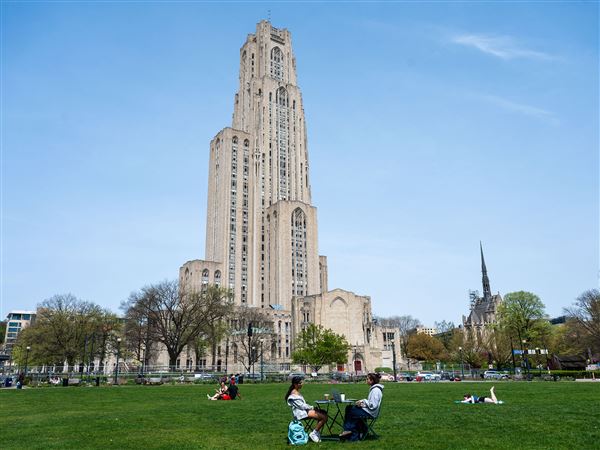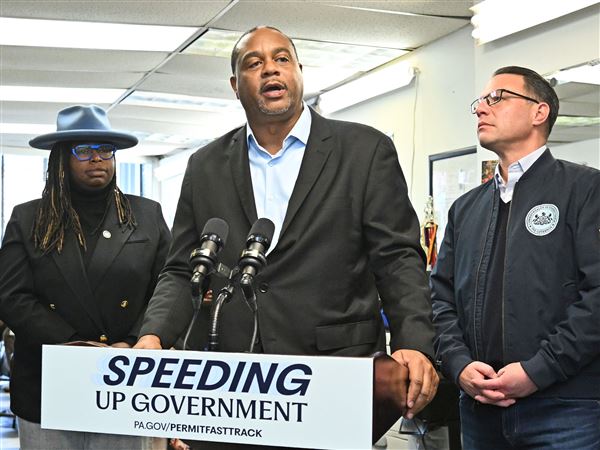The Pittsburgh region, once a metaphor for industrial decline, is now authoring a more hopeful chapter in our nation’s economic storybook.
Deliberate, strategic, long-term action has enabled the region to begin transforming its 20th-century steel-manufacturing legacy into 21st-century specializations in fields like advanced manufacturing, robotics, and the life sciences. World-class research universities like Carnegie Mellon University (CMU) and the University of Pittsburgh (Pitt), backed by substantial public and private investment, have critically shaped this new economic trajectory.
Pittsburgh’s unrealized promise
Yet as our organization, the Brookings Institution, described in a 2017 report, the full promise of Pittsburgh’s “next economy” remains unrealized. To be sure, our recent Metro Monitor report shows that the Pittsburgh region out-performed its peers over the past decade on growth in productivity and earnings, signaling gains in innovative, high-value industries.
However, those industries are not yet generating widespread employment opportunity; Pittsburgh ranked last among 54 large U.S. metro areas for job growth, and registered widening economic disparities across communities and racial groups.
In view of all this, Southwest Pennsylvania finds itself at a pivotal economic juncture, even as the nation overall faces consequential political decisions in 2024. What links the two is the crucial role that federal policies have played, and could continue to play in the future, in supporting the “reindustrialization” of regions like Pittsburgh.
All of which was the subject of discussion at an April 24 forum Brookings held at CMU. During the forum, Pennsylvania business, civic, and government voices took stock of the region’s abundant progress, but also considered what is needed next from policymakers, given the imminent fall election.
Panelists and presenters noted the significant contributions Washington has made to the local economy in the form of support for university-based research.
Pitt, for example, is the nation’s sixth-largest recipient of research dollars from the National Institutes of Health, while CMU is the second-largest recipient of federal research grants for computer and information sciences. These flows have helped seed many of the bold breakthroughs now driving the region’s emerging industries.
Capitalizing on assets
And yet, as the speakers last month made clear, university-based innovation remains a necessary but not sufficient input to commercially viable applications, new companies, and broad-based employment growth that reaches diverse workers and both core urban and outlying communities.
That’s why leaders in the region have made strategic bets to capitalize on Pittsburgh’s world-class research assets. For instance, leaders from Pitt and the RK Mellon Foundation discussed their support for BioForge, a new facility for the manufacturing of cell and gene-based therapies being built in the Hazelwood neighborhood.
Similar foresight more than 25 years ago birthed the National Robotics Engineering Center at CMU, which helped fuel the region’s ascendance in that field. That set the stage for a $62 million federal grant in 2022 to support the robotics industry’s expansion throughout Southwest Pennsylvania.
That’s one example of how the U.S. federal government, like other central governments around the world, is adopting more purposeful policies to catalyze the growth of vibrant local investment and business clusters in industries such as advanced manufacturing, clean energy, the life sciences, and artificial intelligence.
Recent federal legislation including the Infrastructure Investment and Jobs Act, the CHIPS and Science Act, and the Inflation Reduction Act are investing billions in such strategies, and stimulating significant new private investment in the process.
Beyond direct federal investment, forum participants noted that other policy choices will matter greatly, too. For instance, Washington’s approach to regulating safety testing for drugs to treat rare diseases could shape commercial opportunities for emerging life sciences companies. U.S. tariff and trade policies will influence manufacturers’ location decisions, as well as the prices consumers pay.
State policies, as Pennsylvania’s Community and Economic Development Secretary Rick Siger explained, can complement federal policies, particularly in areas such as workforce development, land assembly, and support for smaller cities and regions.
High stakes election
In our view, the stakes this year are high for Southwest Pennsylvania’s economic future. The decisions voters here and elsewhere make at the polls will matter for the continued renewal of the region’s advanced manufacturing sector; the cultivation of its vibrant life sciences cluster; and the potential supercharging and broadening of its globally recognized robotics industry.
Local leadership and federal partnership have laid the foundation for a renewed Pittsburgh-area economy, one that delivers for all of its families and communities. It’s up to the voters to write the next chapter.
Alan Berube is the interim vice president and director of Brookings Metro. Mark Muro is a senior fellow at Brookings Metro.
First Published: May 3, 2024, 9:30 a.m.















